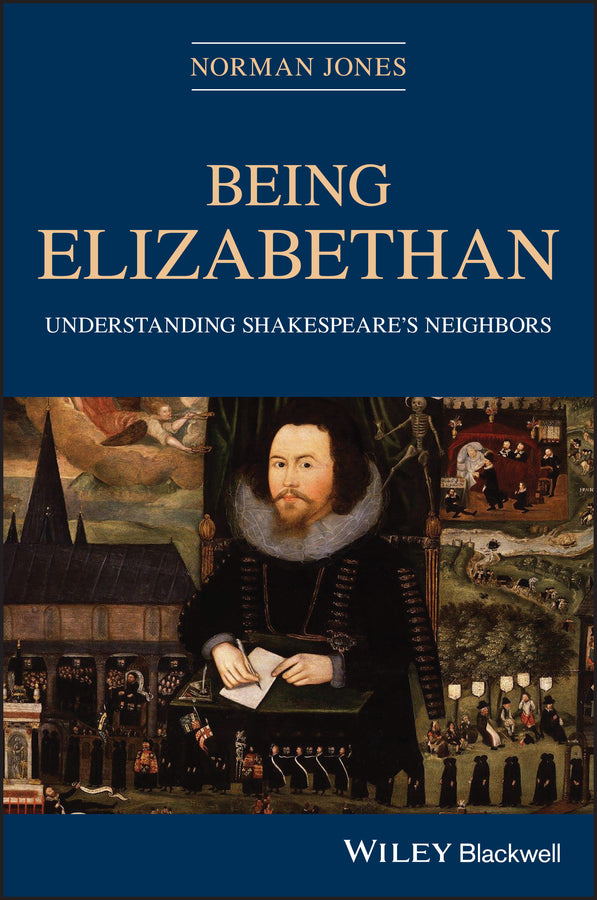Description
Dive into the vibrant world of the Elizabethan era with our latest arrival, a meticulously crafted book capturing the essence of Shakespeare's age. 'Being Elizabethan' delves into the profound cultural shifts experienced during the second half of the sixteenth century and the dawn of the seventeenth century. This 368-page scholarly work examines the lives of Elizabethans as they navigated through a time marked by globalization, the Reformation, economic transformation, and social upheaval.
This enlightening book not only surveys how these pivotal historical events influenced individuals' beliefs about God, nation, and self but also highlights stories that illustrate the complex tapestry of Elizabethan life. Readers will appreciate the accessible writing style that engages both history enthusiasts and scholars alike. Explore how long-held ideals were challenged, leading to an era where individualism began to outweigh communal ethics.
Ideal for students, educators, and anyone intrigued by England’s rich past, 'Being Elizabethan' reveals the dichotomy between steadfast divine beliefs and the evolving understanding of physical and metaphysical truths that shaped this era. With contributions from eminent scholars and reflecting deep research, this book serves as a key resource for comprehending the roots of modern English culture.
Note: Shipping for this item is free. Please allow up to 6 weeks for delivery. Once your order is placed, it cannot be cancelled. Condition: BRAND NEW, ISBN: 9781119168249, Year: 2019, Publisher: John Wiley & Sons Inc (US).
Note: Shipping for this item is free. Please allow up to 6 weeks for delivery. Once your order is placed, it cannot be cancelled.
Condition: BRAND NEW
ISBN: 9781119168249
Year: 2019
Publisher: John Wiley & Sons Inc (US)
Pages: 368
Description:
Captures the worldviews, concerns, joys, and experiences of people living through the cultural changes in the second half of the sixteenth century and the early seventeenth century, Shakespeare™s age.
Elizabethans lived through a time of cultural collapse and rejuvenation as the impacts of globalization, the religious Reformation, economic and scientific revolutions, wars, and religious dissent forced them to reformulate their ideas of God, nation, society and self. This well-written, accessible book depicting how Elizabethans perceived reality and acted on their perceptions illustrates Elizabethan life, offering readers well-told stories about the Elizabethan people and the world around them. It defines the older ideas of pre-Elizabethan culture and shows how they were shattered and replaced by a new culture based on the emergence of individual conscience. The book posits that post-Reformation English culture, emphasizing the internalization of religious certainties, embraced skepticism in ways that valued individualism over older communal values
Being Elizabethan portrays how people™s lives were shaped and changed by the tension between a received belief in divine stability and new, destabilizing, ideas about physical and metaphysical truth. It begins with a chapter that examines how idealized virtues in a divinely governed universe were encapsulated in funeral sermons and epitaphs, exploring how they perceived the Divine Order. Other chapters discuss Elizabethan social stations, community, economics, self-expression, and more
Illustrates how early modern culture was born by
This enlightening book not only surveys how these pivotal historical events influenced individuals' beliefs about God, nation, and self but also highlights stories that illustrate the complex tapestry of Elizabethan life. Readers will appreciate the accessible writing style that engages both history enthusiasts and scholars alike. Explore how long-held ideals were challenged, leading to an era where individualism began to outweigh communal ethics.
Ideal for students, educators, and anyone intrigued by England’s rich past, 'Being Elizabethan' reveals the dichotomy between steadfast divine beliefs and the evolving understanding of physical and metaphysical truths that shaped this era. With contributions from eminent scholars and reflecting deep research, this book serves as a key resource for comprehending the roots of modern English culture.
Note: Shipping for this item is free. Please allow up to 6 weeks for delivery. Once your order is placed, it cannot be cancelled. Condition: BRAND NEW, ISBN: 9781119168249, Year: 2019, Publisher: John Wiley & Sons Inc (US).
Note: Shipping for this item is free. Please allow up to 6 weeks for delivery. Once your order is placed, it cannot be cancelled.
Condition: BRAND NEW
ISBN: 9781119168249
Year: 2019
Publisher: John Wiley & Sons Inc (US)
Pages: 368
Description:
Captures the worldviews, concerns, joys, and experiences of people living through the cultural changes in the second half of the sixteenth century and the early seventeenth century, Shakespeare™s age.
Elizabethans lived through a time of cultural collapse and rejuvenation as the impacts of globalization, the religious Reformation, economic and scientific revolutions, wars, and religious dissent forced them to reformulate their ideas of God, nation, society and self. This well-written, accessible book depicting how Elizabethans perceived reality and acted on their perceptions illustrates Elizabethan life, offering readers well-told stories about the Elizabethan people and the world around them. It defines the older ideas of pre-Elizabethan culture and shows how they were shattered and replaced by a new culture based on the emergence of individual conscience. The book posits that post-Reformation English culture, emphasizing the internalization of religious certainties, embraced skepticism in ways that valued individualism over older communal values
Being Elizabethan portrays how people™s lives were shaped and changed by the tension between a received belief in divine stability and new, destabilizing, ideas about physical and metaphysical truth. It begins with a chapter that examines how idealized virtues in a divinely governed universe were encapsulated in funeral sermons and epitaphs, exploring how they perceived the Divine Order. Other chapters discuss Elizabethan social stations, community, economics, self-expression, and more
Illustrates how early modern culture was born by

